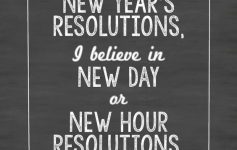Feedback from my students and clients of late has been that job fairs don’t do anything for them. Some of the reasons for this that I have heard include:
1. The people that are working the tables don’t care.
2. All the jobs at these fairs are cold-calling jobs.
3. I already have a job, why should I go to a job fair?
4. There are only entry level opportunities at the fairs I have been to.
Today, I’ll address the first point. I’ve seen this myself; apathy or lack of care in the people working the job fair tables. This could be the result of someone being assigned to the role with little interest, a belief that no candidates will be found by using this method, or the misconception on the part of the attendees that the people behind the table don’t care.
Some of the best practices to employ as a representative of your company at a job fair:
1. Rotate job fair responsibilities between HR, managers, and other representatives of the company.
2. If possible, break up the job fair into shifts, and have people rotate roles during the shift.
3. Outsource your job fair representation; their are plenty of passionate people out there who if hired for a single event may be more passionate about your product than you!
Soon, I’ll touch on #2 on this list – “All the jobs at these fairs are cold-calling jobs.”


I have to agree with some of the sentiments, however from my perspective it also seems that job seekers might go to these job fairs with false expectations. I run job fairs each Spring and Fall, and can certainly say that about 10% of the employer representatives there are not always thrilled to be manning a booth all day… and about another 10% (at my events anyway) are for “cold-calling” or otherwise contract type “salesy” work… The best thing that an individual can do, to prepare for a job fair, is to research the companies before arriving (dressing appropriately might help, also). I happen to know that job fairs are a necessary, and sometimes great, way for job seekers and employers to meet… You have traditional methods that an employer might use for recruitment (newsprint, word of mouth, sign in the window, etc) and some new media vehicles (online job boards, social networking & more creative events). In order for a job fair to be successful, there needs to be a good mix of employment opportunities matched with a mix of job seekers with varying skill sets, education and level of experience. That all comes down to marketing (360 degree marketing)….. I, for one, feel that a job fair can be extremely successful if a component of training is included… Just a traditional “job fair,” where representatives are sent to collect resumes en masse tend to lend to morale issues. In order to cultivate an atmosphere of learning about potential growth, there must be a more one-on-one guerilla type mentality for every individual that walks through the door….
As for the employment representatives sitting at each booth, maybe rotating shifts would help but that doesn’t fix the masses of attendees coming up completely unprepared for what should be their first impression with a potential future employer. Worse yet is the deluge of individuals simply wandering through to grab whatever free chotchkies they might find……. Again, it all comes down to preparation… The employers can do more, the job seekers should do more and I feel that job fair planners have that ballgame in the palm of their hands. At the end of the day, I try to work with employment counselors (both private contractors and career service professionals within all of the colleges and universities, BOCES, Dept of Labor, One-Stop staffers and similar persons of capacity at various training facilities), as these members of our community tend to have the best chance of reaching out to the job seekers one at a time.